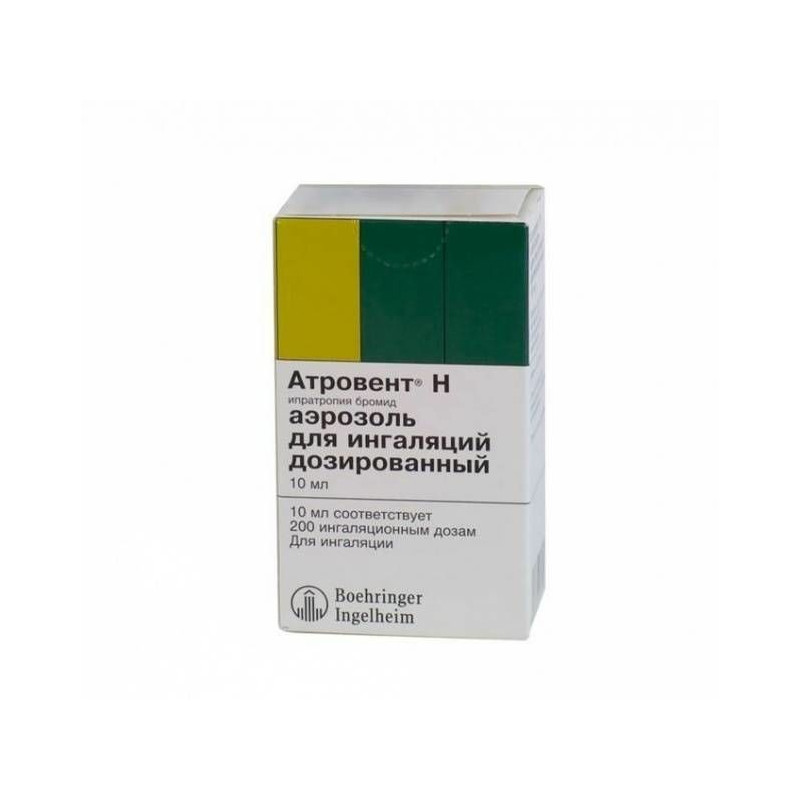



 All payments are encrypted via SSL
All payments are encrypted via SSL
 Full Refund if you haven't received your order
Full Refund if you haven't received your order
Atrovent N metered dose inhalation:
1 ml of solution contains 0,021 mg ipratropium bromide;
in aerosol cans with a mouthpiece of 10 ml (200 doses); in the box 1 cylinder
Atrovent - bronchodilator drug - blocker of m-cholinergic receptors. It blocks the m-cholinergic receptors of the smooth muscles of the bronchi (mainly at the level of the large and medium bronchi) and suppresses reflex bronchoconstriction. Having a structural similarity with the acetylcholine molecule, is its competitive antagonist.
Warns bronchospasm resulting from inhalation of cigarette smoke, cold air, the action of various drugs, and also eliminates bronchospasm associated with the influence of the vagus nerve.
Chronic obstructive pulmonary disease (chronic obstructive bronchitis, pulmonary emphysema); bronchial asthma (moderate and mild), especially with concomitant diseases of the cardiovascular system.
Hypersensitivity to atropine and its derivatives, and other components of the drug, pregnancy (I term), children under 6 years old (Atrovent H).
Adults and children over 6 years old - 2 doses of aerosol 4 times a day, if necessary, the dose can be increased to 12 inhalations per day.
Contraindicated in the first trimester of pregnancy, the appointment of Atrovent is possible in the II-III trimester of pregnancy and during breastfeeding only if the expected effect of therapy outweighs the potential risk to the fetus or child.
The most frequent undesirable effects are headache, nausea, dry mouth.
Due to the low systemic absorption of the drug, side effects associated with systemic anticholinergic effects, such as tachycardia, palpitations, accommodation disturbances, decreased secretion of sweat glands, impaired gastrointestinal motility, urinary retention, are rare and are reversible. However, in patients with obstructive lesions of the urinary tract, the risk of urinary retention increases.
Atrovent H is not recommended for emergency relief of asthma attack (the bronchodilator effect develops later than that of beta-adrenostimulants).
Patients with cystic fibrosis have an increased likelihood of slowing gastrointestinal motility.
In the dark place at a temperature of no higher than 25 ° C.
Atrovent n